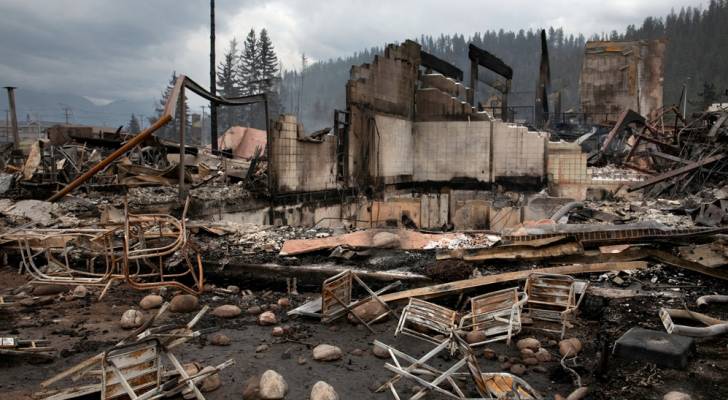
When multiple wildfires tore through Jasper National Park on July 22nd, 2024, the result was one of the most destructive fire events in Canadian history, destroying 358 properties and causing around $1.2 billion in insured damages. Thousands were forced to leave their homes, not knowing whether they would ever get the chance to return.
Residents, like Nancy Addison, who lost her home and has spent the past year living across Canada, say the delay has taken a deep emotional toll. “It makes you feel very far away… without support,” she told CBC. “There are lots of people that won’t come back.”
As the town of Jasper prepares to commemorate the one year anniversary of the wildfire, the Insurance Bureau of Canada (IBC) is calling for national reform to help prevent prolonged rebuilding delays after catastrophic events.
“Canada needs a federal coordinating agency to guide emergency preparedness and recovery so that Parks Canada, and other jurisdictions, don’t have to create unique playbooks after each catastrophic event,” Craig Stewart, IBC’s vice-president for Climate Change and Federal Issues, said in a statement.
Federal funding, federal friction
To date, only 56 properties — or 15% of those destroyed — have received permits to rebuild. According to the latest Jasper Recovery Coordination Centre report, 260 households have moved into interim housing.
“Over the past year, the people of Jasper have shown tremendous resilience, and insurers will continue to be there every step of the way to support recovery efforts," Aaron Sutherland, IBC’s vice-president, Pacific and Western, said in a statement.
By contrast, Fort McMurray — which suffered Canada’s most costly wildfire in 2016 at around $9.9 billion — saw reconstruction begin within months, well before the one-year mark.
The substantial delays in Jasper have been attributed largely to the town’s unique location within a national park. Federal environmental remediation standards, including soil testing and cleanup, have added significant complexity, cost and time to the rebuilding process. Crucially, these are costs that also typically fall outside the remit of standard insurance coverage.
While the federal government has committed to covering these additional remediation costs for leaseholders, recovery remains sluggish.
Time and money may be running out for some Jasper residents
The Municipality of Jasper will host an official commemoration on July 22nd in Commemoration Park, supported by a week of social events that encourage residents to gather, reflect, and most importantly, participate in Jasper’s rebuild.
"We appreciate that this is going to be a difficult time for many people in our community," Jasper’s chief of administration, Bill Given, told CBC.
"We want to ensure that they have access to a way to commemorate the events of the past year in a way that’s meaningful, but also that they have an opportunity to look forward to a brighter future."
In light of the difficulties in Jasper, the IBC is urging the federal government to lead a national conversation on how Canada responds to catastrophic events like the Jasper Wildfire Complex. According to Stewart, the country lacks a central agency responsible for coordinating disaster response, unlike every other G7 nation.
Insurers are also warning that these continued delays may exhaust policyholders’ coverage for Additional Living Expenses and Business Interruption.
Many residents and business owners could soon face further financial hardship without additional support. Policyholders are being encouraged to speak with their insurers to determine their options.
Could Jasper spark a national shift?
The Jasper fire destroyed roughly one-third of the town’s buildings and forced thousands to evacuate the place they called home. Tragically, twenty-four year old firefighter Morgan Kitchen lost his life while battling the blaze. The incentive to prevent another such disaster, for insurers and residents alike, is huge.
With wildfire risk increasing in both frequency and severity across the country, Canada’s insurers are calling for a series of preventative measures, including:
- Greater investment in FireSmart Community Wildfire Protection Plans
- Limitations on new development in high-risk areas
- Mandatory fire-resistant building codes
- Enhanced wildfire response and suppression
As insurers continue to support residents through the long road to recovery, the hope is that Jasper’s unique challenges can serve as a catalyst for stronger, more coordinated disaster preparedness nationwide.
For updates on Jasper’s recovery, visit jasper-alberta.ca/p/jasperwildfire.
This article provides information only and should not be construed as advice. It is provided without warranty of any kind.